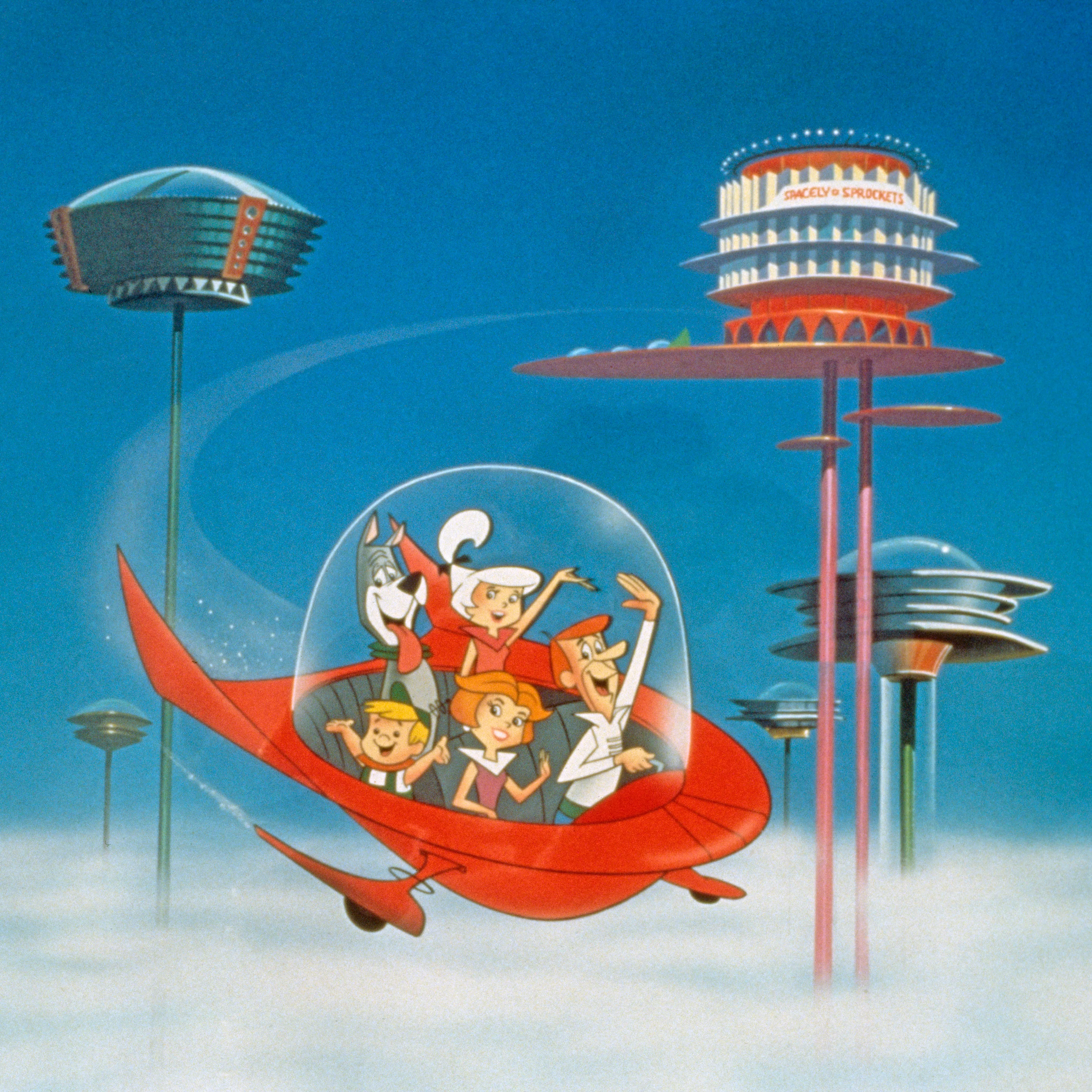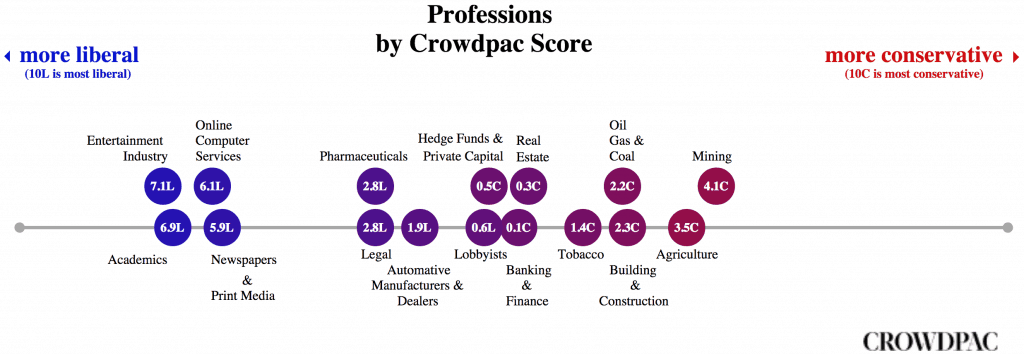Is humanity ready for Elon Musk’s Mars mission?
🙂
Going to Mars is harder than getting to the top of Mt. Everest. And I don’t see anyone living way up there on the summit.

Dear Mr. Musk, I think a better way of doing it is to genetically engineer bacteria to produce an atmosphere first, over successive generations. Generations as in plural, i.e. more than one.
One simple reason we’re where we’re at today is because nature has provided us with abundant raw materials. It started with the use of solar powered materials (by that I mean twine and timber). There are no solar powered materials on Mars. No trees. No forests. The most efficient materials (in terms of energy required to produce them) are natural materials, because they convert sunlight directly into… materials. No heat required. All other synthetic materials require lots of energy to produce.
If I were hired to do a materials feasibility study, I would have to rule that it is “not yet feasible”. Even with the invention of “Martian concrete”. How are are you going to make hermetically sealed living quarters out of that slop? Are they going to be shoveling Martian concrete… wearing gas masks? Builders can’t even get that right here on Earth with abundant food, water and a 21% oxygen level. None of that over there. Is there?
My point is that nature is still subsidising all of humanity’s activities, even today. So we would be going backward centuries, millennia even. You can’t even light a fire on the planet Mars. What good is that? People today would be bored out of their minds.
IMHO, trying to colonise Mars now is going to be 10x slower, 10x more expensive and 10x more boring than expected. Besides, if we were all living on the planet Mars now under domed little roofs, I’m sure we’d all want to live here –on the interesting planet– not there.
And the way production and manufacturing has worked up until now is this: several tens of thousands of years ago, wood and other natural, local materials were first used to to usher in the ceramic/pottery era … which was then used to usher in the bronze era … which was then used to usher in the iron era … which was used to usher in the modern information & nanotechnology era. We have always had to work our way up the material chain. And all the while, well, nature herself has been subsidising us all along. With the really important things like food and oxygen.
My point is, we didn’t just jump straight into making gigahertz computers, we had to work up to it. Slooowly.
So it would be a bit like taking our current technology back in time, to the ancient Egyptians. Now to the big question: How much technology would we need to take to them to advance the rest of that civilisation in one big, massive jump forwards?
So right along those lines, here’s a quick thought experiment: say you take a smartphone back in time to the ancient Egyptians. Does anyone truly think that that would be ‘enough’ to start making mass-produced batches of smartphones right next to the pyramids o Giza? Well in case it isn’t clear already, it’s not.
Because first of all, there are no microscopes to even see what is going on inside that phone to even reverse-engineer that technology. And in order to get the microscopes, one has to first invent glass. And to do that, one needs polishing machines. Which requires motors. Axles. Bearings. Magnets. Copper wire. Electrical insulation. Ok. Now that we have that, on to making the components. Capacitors require tantalum. Touch screens require indium. Tin. Oxygen.
What are resistors made of? Carbon. Nichrome wire. Plenty of that here on Earth… not so much on Mars. Okay, not to be the pessimistic one, what are circuit boards made of? Fibreglass. What is the matrix made of? Plastic. What are plastic buttons and the casing made of? Plastic. No oil wells on Mars yet. Shit. Where is the nearest fibreglass factory? Where is the nearest plastic factory? Yellow pages? Hmmm. This is going to be more difficult than we first thought, isn’t it?
Never mind, we will continue, however.
What about the semiconductors used in all those tiny transistors? Germanium. Germanium is hard enough to get our hands on here, let alone there (with no atmosphere). Do you see my point? And there are many other elements required too. Where is the nearest gadolinium mine? Earth, that’s where.
Where are the silicon mines and purifying factories located on Mars? Nowhere. Don’t we need vacuum rooms for that as well? Well, yes. Why? Because the ‘vacuum’ that is the Mars’ atmosphere… is simply not ‘vacuumy’ enough. We need an ultra-high vacuum to achieve high-grade 99.999% purity silicon. So we are going to take vacuum pumps with us now are we? They’re pretty heavy. And every scientist already knows— you can never ever get down to an ultra-high vacuum with only one type of vacuum pump. Better make that rocket booster a bit bigger for the takeoff. Still more rocket fuel than expected.
Ahh yes, there is this one new technique to manufacture 99.999% silicon from 84% ferrosilicon. Except that it requires a sol-gel lab. Glassware at the very least. Liquids. Centrifuges. Magnets. Neodymium. Oh well.
So what you space futurists are basically telling me is that you would have to bring all of these starting materials… from Earth first… simply in order to “get going”.
I can’t even yet buy a fucking Mars bar on the planet Mars. And we are already talking about colonising that motherfucker?
“For a better world?”
Which world exactly?
Timely reminder: there is a whole freakin’ industry required to produce computers and everything else from their raw materials. A whole level of industry. Everything from mining equipment to extraction facilities, to manufacturing centres and clean rooms. The only way a Mars colony could ever be truly self-sustaining, is to take several different types of factories –yes I said entire factories– with us.
And everyone already knows small factories are not as efficient as larger factories, right? So in case the purpose of this post isn’t clear yet, what is the fucking point of this new Mars mission?
And now to my second big question: if we already know that the efficiency of production there is going to be WORSE than what it is here. If getting there fuck’s up this planet further, why even go?
Why go? Because we can? Does that mean we should? This goes without saying, but just because we can do something does not mean that we should. Simply being able to do something does not make it ‘better’.
And is that what we have been planning to do all along? How much jet fuel would that require I wonder? Eh?
So I think we better not bite off more than we can chew. I think the space mission to Mars, this whole redent “we need to colonise Mars” thing, is a bit like the 1960s space race, but this time between billionaires/trillionaires not just superpower states. Albeit with comparable 1950s era-like naïvety. That’s what I think of it. Those futuristic images depicted by artificial intelligence are just about as stupid and naïve as some 1950s era visions of space stations and shit. And here we are in the year 2025 (which really does feel like “the future” in many respects, at least to some of us older people) and there are no space stations or . Except today we really should know better.
Now, I am not saying that we are not ‘clever’. I am not saying that we are not ‘advanced’. I am not saying that it can’t ever be done. And I’m not saying that it won’t ever be done.
But what I am saying is that it is definitely going to be harder than we think. Not to mention less efficient. And ultimately worse for planet Earth.
We are not yet even fully self sustaining here on Earth, with water that falls freely from the sky, with oxygen that is freely available and with food that grows all by itself.
And people still want to start an entire manufacturing operation on another planet, with absolutely none of that already over there?
UPDATE:
Just today, Elon, rather foolishly said this:
“We need to transport about a million tons of cargo in order to make it sustainable and about a million people or more. Civilization will branch off when Mars can self sustain even if shipments from Earth stop coming. I think there might be a case where the future Mars citizens come and help Earth one day when we’ll need it. Once we have a Mars civilization we can expand to the rest of the solar system. Then we go from being a multi planetary civilization to a multi stellar civilization and start learning more about if we’re the only life out here.” — Elon Musk
Firstly, not even Elon Musk could afford to transport a million tonnes of cargo to the planet Mars any time soon. And I’d be willing to bet that not even the top 1% rich people couldn’t afford it either, even if they pooled together all of their wealth, combined and accumulated it. It’s just… not happening okay. So forget it Elon.
And here’s a scary few final thoughts. The only way it would work, I think, is if ‘people’ are genetically modified and specifically adapted to live there. If they can breathe thinner air, if they have different shaped noses to filter out the Martian dust (well that’s assuming they won’t need a space helmet), thicker UV-protected skin (also prevents or lessens dehydration), different digestive tract to cope with different food sources perhaps, lesser water requirements than humans.
Would these beings then resemble humans at all then? Would we even want to go in that direction? It opens all sorts of ethical questions and moral dilemmas.
And sooner than “future Mars citizens come and help Earth one day”, I think much more likely to happen, if you look at past historical events and squabbles over mineral and material resources, food sources and land, is that the new Martian colony, once it starts to get established that is, becomes very different from our own, generates its own [different] cultures, priorities, values and traditions. Because it is more isolated and segregated and this is always what happens with any new colonies. They diverge. And then it, they, whatever they is, starts to see us –all of humanity back here on Earth– as a threat to its own survival, a direct threat to its very own existence, and goes on to attack us. To declare war on Earth. Or vice versa, and we go to war with them. It would be like creating Frankenstein’s monster. Why go there? Why do it? We may live to regret it one day.
I certainly don’t think it’s right. We need to fix our home and make our way of life more sustainable first before galavanting halfway off across the Solar System and spoiling other planets with our man-made synthetic junk.
Elon mentioned something about dinosaurs not having spaceships. Well dinosaurs were some of the most successful organisms to roam the Earth. They were around for hundreds and hundreds of millions of years. We really shouldn’t insult that longevity.
Just a reminder that those big extinction-event level asteroids are very few and far between, happening every few hundred million years or so. If Elon is so worried about apocalyptic asteroids striking the Earth one day and completely wiping us all out so to speak, why doesn’t he choose to focus on that actual threat –the asteroids– instead of this whole Mars colony thing? Wouldn’t it be smarter to concentrate on asteroid detection and elmination device instead? Wouldn’t that be a lot simpler and, well, cheaper? It would. Well I’ll answer my own question, yes it would. That would be a much cheaper insurance approach to human civilisation than striving for some ridiculously costly non-practical and non-workable “planet B” option.
Why do I seem to ‘hate’ the rich?
Ecologists have always said that one of the greatest threats to our natural environment is habitat destruction.
One of the main gripes I have against ultra-high net worth individuals is that they cause the most environmental degradation of all groups on this planet and they don’t tend to offset this with direct contributions back towards the natural environment.
I think the following advertisement nicely sums up the ‘attitude’ that some rich people seem to have:
So the reasons that I question ‘rich’ people are:
- Because rich people are usually responsible for more environmental destruction than poor people, they have brought about more degradative environmental changes.
- Because rich people are primarily motivated by money, they are more likely can be bought out (corrupted) with even more money.
- When the rich do give, they tend to give back to humanitarian causes. And if they do give, is it really enough of an offset? Not always, but often. One exception I have found is Mohammad Bin Zayeed; the man started his own species conservation fund. Another is the Betty and Gordon Moore Foundation.
Why is this a problem? Well, because the only physical thing (that I know of) that stops our Earth from becoming uninhabitable is all the life forms found on Earth that stabilise everything for us. The biosphere.
Any biologist will tell you that, realistically, what is going to happen is that as nature continues to “bite back” with ever-greater intensity, productivity (and therefore profit) is just going to go down eventually… it has to. It must! Less biodiversity is ultimately going to lead to less profit. Do all investors and directors of the board actually realise that? Do they realise that infinite growth on a planet with finite resources is a physical impossibility?
So not only will it be harder to make profit feeling the increasing effects of climate change (like with the recent New York blizzard for example), but more damage will be likely to occur due to storms and other weather extremes. I’ll say it again. Less biodiversity is ultimately going to lead to less profit. Why do I say that? Why do I think it will lead to less profit? Read on..
So we know that there are other planets out there. We’re not living on the only planet. Planetary geologists like to compare the planet Earth with Mars and Venus. All of these three planets are very similar in size and yet they have distinctly different environments. These other planets show us what is possible. As of today, both of these other two planets are essentially uninhabitable. Yes we could put a person on Mars and they might survive for a while inside an artificially heated, pressurised and oxygenated atmosphere, but would they be self sufficient? The answer is no definitely not at first.
As is, nothing grows there on Mars. Nothing. Not even the most basic life form. So that means no food. Worse, there is no water. And worse still is that there is no oxygen.
What about Venus then? Well again, even if we could get there, even if we could live there, most businesses would be more viable back here on planet Earth than on the planet Venus. Wouldn’t they? Maybe the exception would be companies that need to utlise lots of carbon dioxide and sulfuric acid.
Let’s take sulfuric acid. Let’s go with that example. Sure its useful to us here on Earth for all sorts of industrial purposes. So say we started to mine sulfuric acid on the planet venus. Even then we’d first need to get robots over there, wouldn’t we? And then we’d need to get the sulfuric acid back here on Earth.
But what are the transportations costs? How much fuel is burned? And doesn’t burning all that rocket fuel fuck up the Earth’s atmosphere even further? Well yes it does. What about if the Venus mining corporation had to pay carbon credits on all the tonnes of rocket fuel? And once there, how would the rocket get back to Earth? It would have to take enough fuel and liquid oxygen for the entire return journey. Because there is no oxygen on Venus. So now you tell me. Would it be a profitable enterprise?
Think about this (and keep in mind that I am one of the few scientists who have also set up my own business, so I do know a thing or two about profitability). Well in my professional scientific and business opinion, if you wanted to set up a business on the planet Mars, it would be more economically viable to locate your business at the South pole instead.
Why do I even bring this up here? What’s this got to do with rich people? What’s this got to do with money? Well, I don’t know of any businesses that are viable on either the planet Mars or Venus. Do you? Not even the most basic lemonade stand would work on the planet Mars or Venus. Would it? And rich people tend to forget this fact.
The newest space mission is estimated to cost $1.5 trillion dollars. That is a lot of investment money for anyone. So where is the ‘ROI’ going to come from that lot? Here’s what I wrote in another post of mine:
To me, it’s the most expensive & inefficient way to create the most boring food menu imagineable. Really. I mean, just think about how much those first few thousand lettuce leaves are going to cost! A billion dollars per lettuce leaf. That’s really great NASA. Thanks.
You see, if we had to pay for our oxygen supply, our water supply and our food supply down here on Earth like we would have to on Mars, then I’m sure that most businesses on Earth would become bankrupt within a matter of weeks. So economists (and rich people) are forgetting to take nature’s services into account. And when they do, I think they’ll realise that a forest is a very valuable place indeed.
“Typical liberal moron”
So just today, someone once again called us ‘liberals’ morons. Again.
First of all, I’d like to point out to Americans that in Australia, the liberal party is actually the conservative party. The labor party is the one that swings to the left. So get your facts straight.
I hope you are one of those republicans and you are reading this. I really do. I’ve tried to spam this blog post with conservative keywords in the hope that more of you will find it and actually use a greater proportion of the right hand side of your brain.
Anyway, I think you’ll find that the majority (not all, but most) creative people ARE liberal.
So that means artists, musicians, writers, actors, 3D animators, graphic designers, industrial designers, fashion designers, interior designers, architects, art directors, creative directors, marketing and advertising gurus, chefs, comedians, photographers, hairdressers, dancers … you know… all the people who make life interesting. Not to mention many scientists, psychologists and health care workers as well.
What that means is, who do you actually go to when you do any of the following: read a book; watch movies (other than old westerns); listen to music (anthing but country music that is); buy nice clothes (including designer suits); buy furniture; go out to a restaurant; give birth to a child; watch a comedy; take a taxi; get a haircut; need a lawyer; need a psychologist; go out for a drink at a bar or pub; set foot in a nicely designed home; watch any kind of entertainment.
What music do you listen to when you feel like cheering up? Who do you go to when you want to sell more widgets? Who do you go to when you want advice on branding or corporate identity? How about you stop calling people “liberal morons” eh? Do you not know how to compose an entire sentence without insulting someone? Because it’s becoming tiresome. Really. If anyone has made the Divided States of America, it is you.
I hate to say this, but without liberal people, your society would look a lot like the USSR. You know: communist! Not that there’s anything wrong with that either. It’s just… a bit too depressing by all accounts. [Read more…]
Corvette owner defends his purchase…
“A guy looked at the Corvette the other day and said I wonder how many people could have been fed for the cost of that car. I replied I am not sure, it fed a lot of families in Kentucky who built it, it fed the people who make the tires, it fed the people who made the components, it fed the people in the copper mine who mined the copper for the wires, it fed people who make the trucks that haul the copper ore. That’s the difference between capitalism and welfare mentality. When you buy something,you put money in people’s pockets and give them dignity for their skills” — Anubhav Krishna
Yes that may well be true, but I say again, if everyone on the planet owned as many corvettes/helicopters/mansions at they wanted, for as many generations as they wanted, Earth itself would be really fúckéd (not the people, the planet).
If you understand all about the materials that go into your car, as you seem to, then you will also understand this. It all has to come from the Earth’s crust. So nature is what is getting fúckéd over here, not people. I say this as a former materials scientist. Perhaps a more relevant question should have been “what was the environmental impact of this car?”.
The real trouble today is that this capitalist/industrialist model is not at all sustainable in its current form. Just because it has ‘worked’ for a hundred or so years, doesn’t mean it will ‘work’ for another thousand (it won’t, it can’t). Apart from that, I find it SAD that people equate materials with success.
- « Previous Page
- 1
- …
- 33
- 34
- 35
- 36
- 37
- …
- 72
- Next Page »



